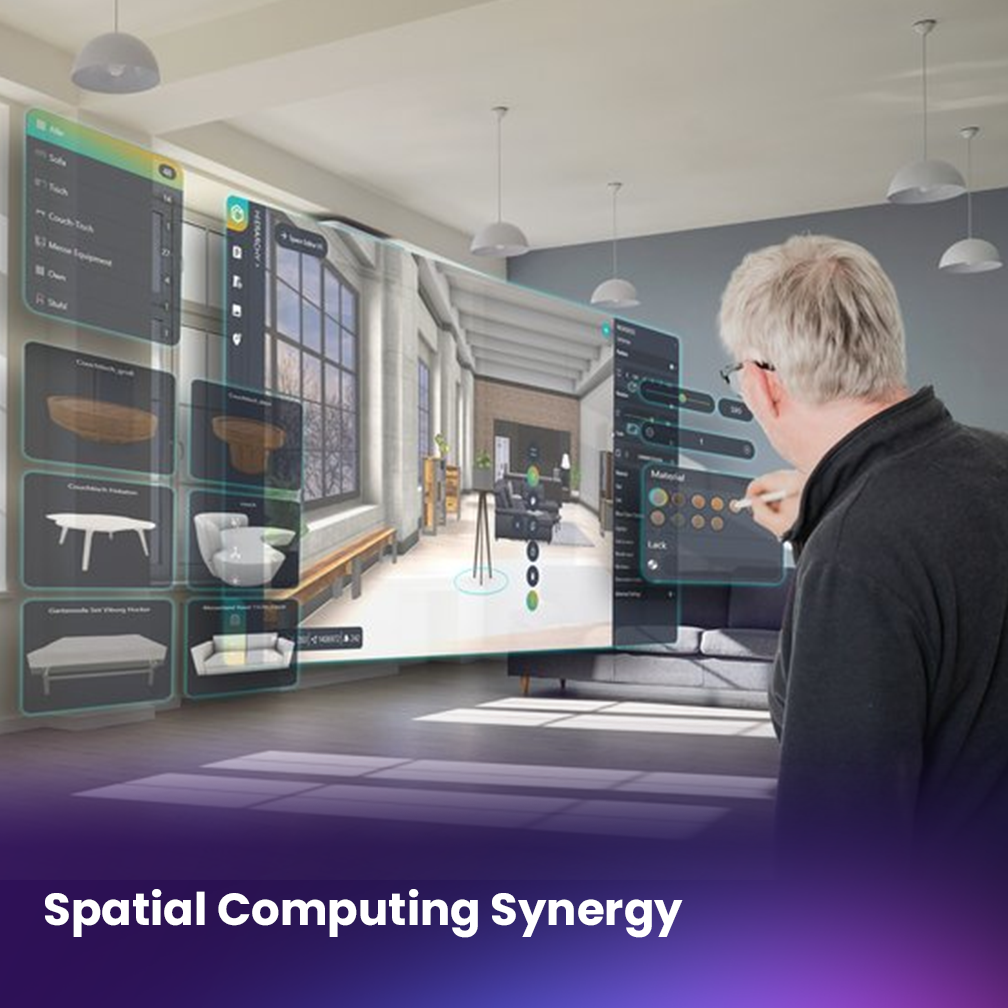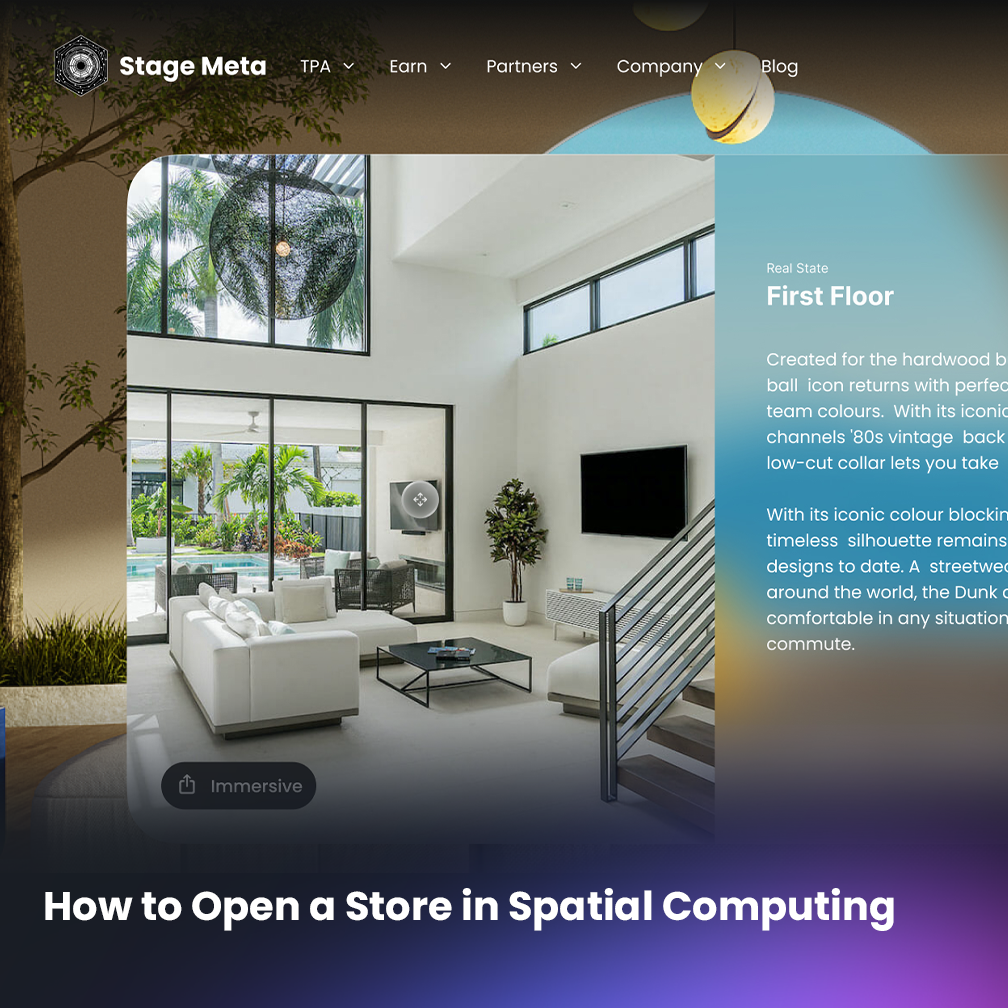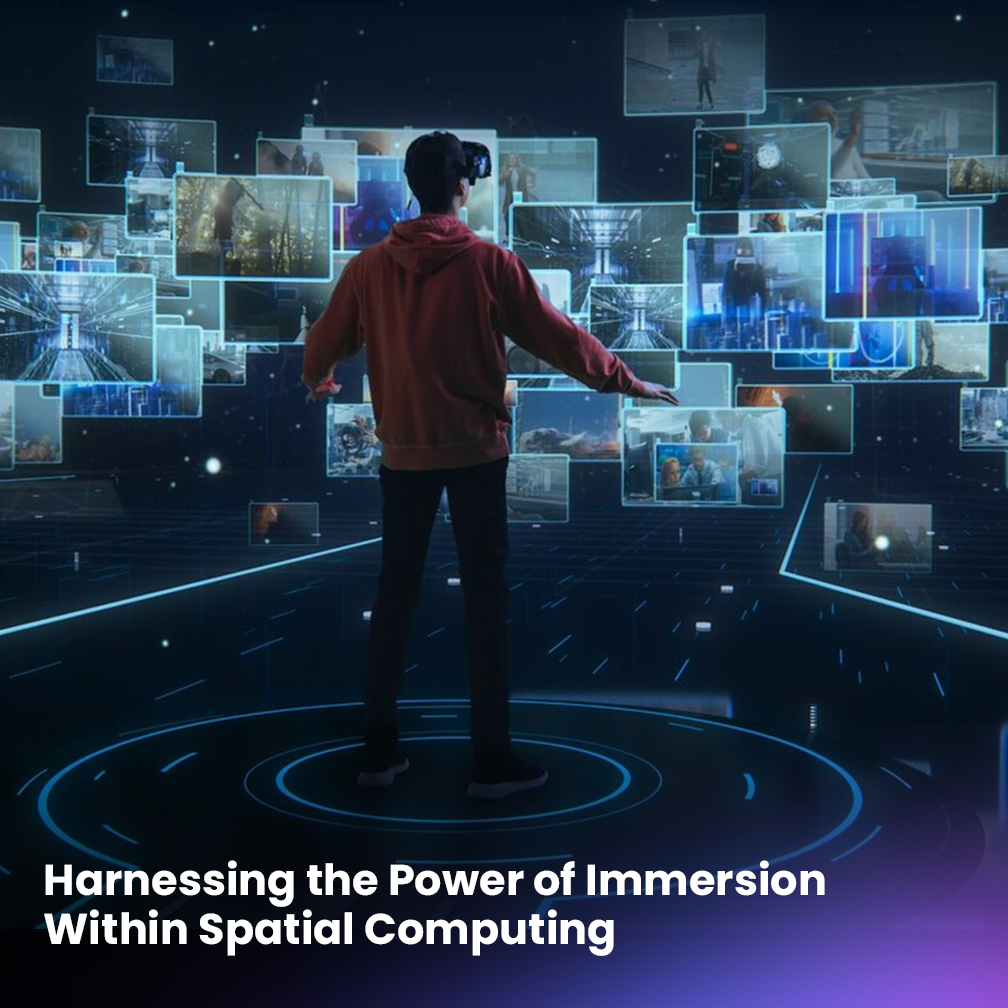
Estimated reading time: 4 minutes
In recent years, the emergence of spatial computing has created an unprecedented impact not only on our virtual worlds but also on our physical lives.
Spatial computing refers to a virtual three-dimensional universe accessible via cyberspace with the help of avatars, artificial intelligence (AI), and emerging technologies like augmented and virtual reality (AR and VR).
By looking at the ways in which spatial computing is shaping our reality, we can gain a better understanding of how technology and digitalization are reshaping humanity. With this knowledge, we can make more informed decisions about how to embrace the opportunities and mitigate potential risks that come with living in a spatial computing-infused world.
So, let’s dive in and explore the influence of spatial computing on our lives.
Spatial Computing’s Social Impact
The social impact of spatial computing, or virtual reality-based online communities, is a complex and multifaceted topic. Some potential social impacts of spatial computing include:
More inclusivity: Spatial computing could create a more inclusive and diverse digital world where people can connect and collaborate regardless of physical location, appearance, or background, thanks to the avatar technology.
New forms of social interaction: Spatial computing offers new possibilities for social interaction, such as immersive experiences, shared spaces, and virtual events. This can provide opportunities for people to connect and socialize in new ways.
Privacy and security concerns: As with any online platform, spatial computing raises concerns about privacy and security. For example, how will user data be protected? How will communities deal with harassment and abuse?
Changes to work and employment: Spatial computing could lead to new forms of work and employment, such as virtual events, experiences, and services. This may impact traditional job roles and could require new skills and training.
Impact on mental health: The immersive nature of spatial computing may have positive and negative impacts on mental health. On one hand, it could provide opportunities for people to connect and engage in meaningful ways. On the other hand, it could lead to social isolation or addiction-like behavior.
It is important to note that the social impact of spatial computing is not predetermined and will largely depend on how these platforms are designed, governed, and used.
As spatial computing continues to evolve, it will be important to consider and address the potential social impact of these new digital communities.
The impact on psychology
The psychology of spatial computing, or virtual reality-based online communities, is a fascinating and rapidly developing field. Here are a few key ideas and potential effects on human psychology spatial computing could have:
Immersion: The immersive nature of spatial computing can create a powerful sense of presence, where users feel as though they are really there. This can lead to more intense emotional reactions and a stronger sense of connection to the virtual environment and other users.
Presence: The sense of presence in spatial computing can also lead to changes in how we perceive and relate to others. For example, research has shown that virtual avatars can influence our attitudes and behaviors in the real world, and that people may be more likely to be open and honest in virtual settings.
Embodiment: The embodiment of avatars in spatial computing can also have an impact on our psychology. Research has shown that people tend to adopt the personality traits of their avatars, and that the appearance of avatars can impact our perceptions of them and their behavior.
Social presence: Spatial computing offers new opportunities for social interaction and can create a sense of social presence that is distinct from other forms of online communication. For example, research has shown that virtual conversations can be more engaging and immersive than traditional text-based communication.
Mental health: Spatial computing may have both positive and negative effects on mental health. On one hand, it could provide opportunities for social connection, stress relief, and even therapy. On the other hand, excessive use of spatial computing or immersion in negative virtual environments could lead to social isolation, addiction, and other mental health issues.
Overall, the psychology of spatial computing is a complex and developing situation. As these virtual communities continue to evolve, it will be important to consider the psychological effects they may have on users and to develop strategies for promoting positive mental health and well-being.
Spatial computing and its immersive experience don’t only have effects on our psychology and how we act but also on many different parts of our social interactions. Check out the next post to learn how spatial computing can potentially reshape our entire society.








